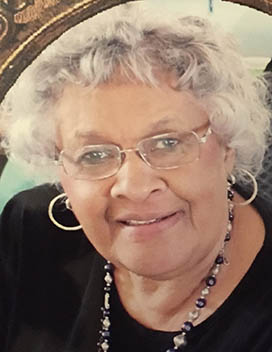Judy Moore: Reconstruction: Rebuilding Our Nation
Published 1:43 pm Friday, September 8, 2023
|
Getting your Trinity Audio player ready...
|
Reconstruction was a time after The Civil War when the U. S. desired to rebuild itself politically, economically and socially. The Fourteenth Amendment gave black men the right to vote and state legislatures who ratified it under the new state constitutions could send representatives to Congress.
In December 1865 Congress extended the existence of the Freedmen’s Bureau, which was created in March of the same year, that provided emergency food and medical care to war refugees, black and white. Under the new bill the Bureau supervised court disputes for freed blacks and established schools for black southerners. After several vetoes, the fourth Reconstruction Act of March 1868 was passed under the presidency of Andrew Johnson.
During Reconstruction, black men made up 80 percent of the Republican voters in the South and with the Democratic support of white supremacy, Republican support grew. Although the percentage of black men who were Republican voters was high, only in South Carolina was it reflected in the Congressional seats held-two senators and 15 representatives.
An economic elevation of African Americans was in the form of sharecropping. Sharecropping involved black Americans farming separate plots of land and at the end of the year the crop percentage was divided normally equally with the landowners. This gave blacks a higher income than wage earners by 40 percent, even though it exploited them by often sinking families into debt.
In the beginning, the Freedmen’s Bureau, with the aid of northern churches and missionaries, established black schools in the South, yet, eventually they were replaced with public schools and by 1876, 40 percent of African Americans were enrolled. In fact, in the public school system only South Carolina and Louisiana required integration. African Americans established churches, mostly Baptist and Methodist, led by black preachers. In addition, these men of God were respected leaders with many of them being elected to political office. Furthermore, African Americans were great supporters of literacy not only for their children but for themselves, attending night classes, wanting to be able to read the Bible and defend their newly gained civil and political rights.
Ultimately, Reconstruction was undermined by a white supremacist agenda with violent threats utilized to usurp black and white Republican support. African Americans were no longer in bondage as slaves and their income rose tremendously through sharecropping although it was a different form of exploitation. Moreover, with the establishment of schools and churches blacks could freely worship God and provide literacy for their children and themselves.
Judy Moore is a tour guide at The Central High Museum and can be reached at v5agabond2@gmail.com. She lives in Wylliesburg.




